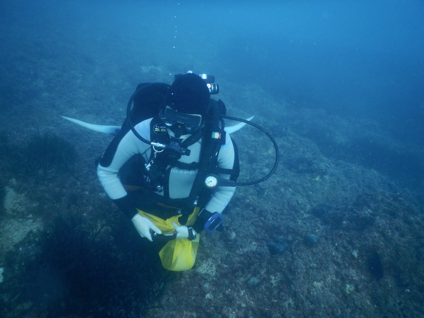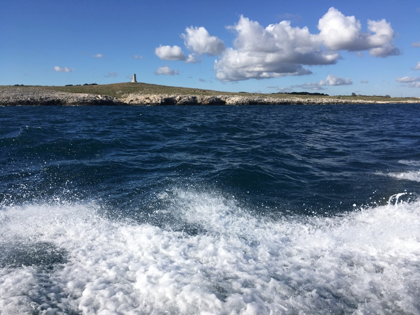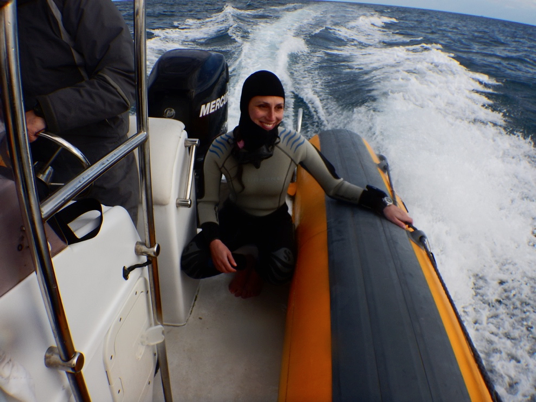By Elena Beli
One day in November 2013 in Italy, during my internship for my Master’s degree at the University of Salento, I was introduced to a professor from the University of Montreal who did not want to be called “professor”. Chris Cameron ended up co-supervising my M.Sc. work in Italy; with Chris I set up a taphonomic decay experiment of a new graptolite species and deepened its systematics, on which I was working with Pr. Stefano Piraino. I called the newly described species Rhabdopleura recondita. Following my M.Sc. I was lucky to embark on a PhD project with Chris on the same animal again in collaboration with the University of Salento – Lecce. I was pleasantly catapulted to Montreal, co-supervised by Pr. Piraino, the person who opened the door to the academic world for me.
Graptolites are colonial animals with a rich fossil record dating back to the Cambrian Period. Few researchers have had the good fortune to see these living fossils. I am one of the lucky ones. Rhabdopleura recondita has been proliferating undisturbed for millions of years in the Mediterranean basin. Thanks to the Quebec Centre for Biodiversity Science excellence award I was able to plan a sampling trip to Italy in December 2016, and research the form and composition of its tubes.

Sampling the graptolite Rhabdopleura recondita by SCUBA. Photography by Mario Ciotti.

Torre del Serpe watchtower, Otranto (Lecce) on the rocky coast. Photography by Mario Ciotti.
Once on the coast, an intense blue-coloured sea and grey sky welcomed us, but there was no time for fussiness, we had to dive. We got in the rubber boat and reached the dive point below a rocky coast which, even under a grey atmosphere, shows the charm of its nature and history. Rhabdopleura colonizes the dead parts of erect bryozoans, common in shallow caves. We sampled the calcareous fragments from the seabed and cave walls for subsequent microscopy observation and experiments.

After sampling, back to the harbour. Photography by Mario Ciotti.
Salento peninsula is renowned for the sun, the sea, and the wind, but nobody tells you that if you dive in December – it will be freezing. Once the jars were filled with the treasure, we ascended to the boat and returned to the calm harbour of Otranto. Facing the cold water and air of the Mediterranean winter dive was not the end of my endurance test: a field researcher must also bear an outdoor cold shower while washing the diving equipment. Fortunately, Salento is also a land of excellent vineyards, and a pasta and seafood lunch with red wine is an excellent source of strength and warmth. Thanks QCBS for this adventure!

Elena Beli is a PhD student at the University of Montreal. For her PhD thesis she is working on a project called “Induced phenotypic plasticity and tube composition of Rhabdopleura recondita (Hemichordata, Pterobranchia, Graptolithina) from the Mediterranean Sea.” Elena is co-supervised by Christopher B. Cameron, associate professor, University of Montreal, and Stefano Piraino, associate professor, University of Salento.

0 Comments